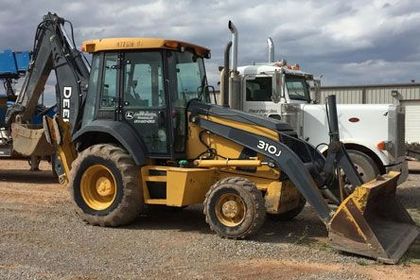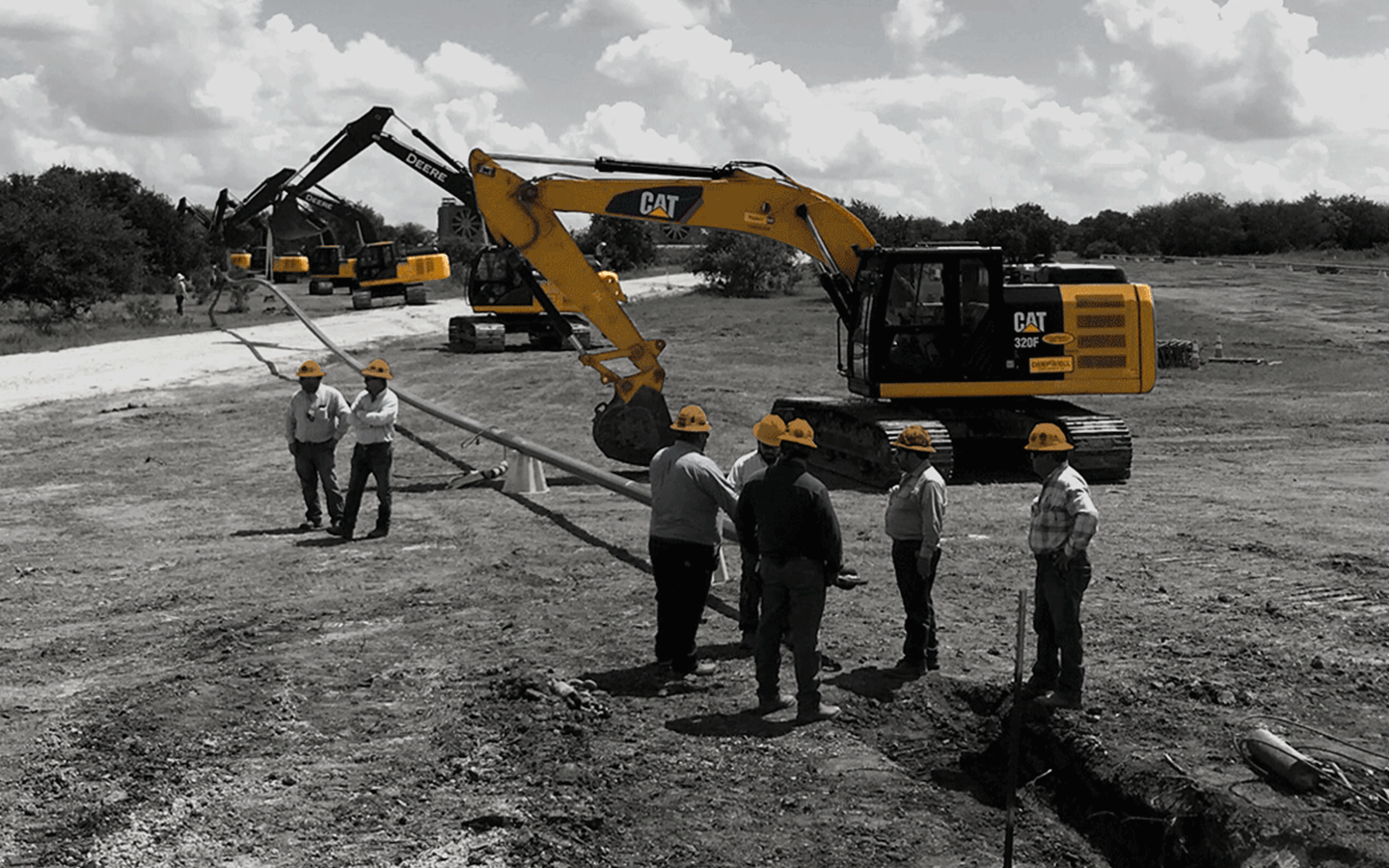Superior Oilfield Rentals oilfield: new solutions shaping production work
A Comprehensive Guide to the Various Kinds Of Oil Field Equipment and Pipeline Equipment Available
The oil and gas market relies greatly on specialized devices for reliable extraction and transportation. Different kinds of equipment, from drilling rigs to storage space containers, play vital duties in this complex process. Each tool offers unique functions that contribute to overall operational success. Comprehending these parts is important for anyone entailed in the industry. As the industry evolves, so also do the technologies that sustain it. What developments are on the perspective?

Drilling Rigs: The Backbone of Oil Expedition
Drilling rigs offer as the essential machinery in the domain of oil expedition, allowing business to accessibility hydrocarbon reserves hidden deep underneath the Earth's surface. These rigs come in different types, consisting of land rigs, offshore rigs, and mobile systems, each developed to run in particular settings. Equipped with advanced innovation, piercing rigs can permeate geological formations with precision, making sure effective source removal. The architectural honesty and operational capabilities of these rigs are critical, as they have to stand up to severe conditions and considerable pressures. The option of a drilling rig affects the overall job expense and timeline, making it an important consideration for oil firms looking for to enhance their exploration initiatives and take full advantage of productivity in their operations.
Pumps: Crucial for Liquid Movement
In the oil removal process, the duty of pumps is substantial, helping with the motion of fluids throughout various stages of production. Pumps are crucial for moving unrefined oil, water, and various other fluids from below ground tanks to the surface area and after that via pipes to refineries. They are available in different kinds, consisting of centrifugal, favorable displacement, and completely submersible pumps, each offering details functions based on the fluid features and operational requirements. Centrifugal pumps are typically utilized for their performance in high-flow applications, while favorable variation pumps master managing viscous fluids. The choice of pump effects general efficiency, operational security, and upkeep prices. Proper selection and upkeep of pumps are vital for optimizing manufacturing and minimizing downtime in oil area procedures.
Valves: Controlling Circulation and Pressure

Shutoffs play an important role in taking care of the flow and stress of liquids within oil fields and pipes. Different kinds of valves serve distinctive applications, each designed to accomplish particular features essential for efficient procedure - Superior Oilfield pipeline equipment rentals. Comprehending the characteristics and uses these shutoffs is important for enhancing system efficiency and security
Sorts of Valves
Essential components in oil area procedures, valves play a critical function in managing the flow and pressure of fluids within pipelines and equipment. Numerous kinds of shutoffs are made use of to satisfy the diverse demands of oil and gas production. Usual kinds include gateway shutoffs, which provide a straight-line circulation and marginal stress decrease; world shutoffs, recognized for their throttling capabilities; and ball valves, identified for their fast on/off control. In addition, check valves stop heartburn, while butterfly valves provide a light-weight service for managing circulation. Each valve type is developed with particular materials and arrangements to withstand the rough conditions typically found in oil areas, guaranteeing dependability and efficiency in procedures. Understanding these types is important for effective system administration.
Valve Applications and Features
While numerous types of valves serve distinct functions, their main applications revolve around regulating circulation and pressure within oil and gas systems. Valves such as gate, world, and round valves regulate fluid movement, ensuring peak performance and safety and security. Gate valves are typically made use of for on/off control, giving very little circulation resistance. World shutoffs, on the other hand, offer accurate flow policy, making them suitable for strangling applications. Ball valves are favored for their quick procedure and limited sealing capacities. Additionally, pressure safety valve are essential for protecting against system overpressure, securing tools stability. Overall, the proper selection and application of valves enhance operational effectiveness, making sure the dependable transportation of oil and gas through pipes and processing facilities.
Compressors: Enhancing Gas Transportation
Compressors play a vital duty in the reliable transportation of gas, making sure that it relocates smoothly with pipes over fars away. These gadgets raise the stress of gas, enabling it to conquer friction and elevation changes within the pipeline system. Furthermore, compressors help with the balancing of supply and need, suiting variations in usage and production prices. Different kinds of compressors are employed in the sector, consisting of centrifugal, reciprocating, and rotating screw compressors, each offering unique advantages based on the operational demands. Normal maintenance of these compressors is necessary to take full advantage of effectiveness and reduce downtime, ultimately adding to a trustworthy gas transportation network. Their critical feature highlights the importance of compressors in the total oil and gas infrastructure.
Storage Tanks: Safe and Effective Liquid Monitoring
Reliable transport of gas counts on numerous sustaining systems, among which is the correct administration of tank. These tanks play an essential duty in safely consisting of fluids, guaranteeing that operational effectiveness is preserved while decreasing ecological threats. Created from resilient materials, they are created to withstand high stress and corrosive components. Effectively sized and purposefully located, storage space tanks promote the smooth circulation of natural gas and various other fluids, protecting against traffic jams in supply chains. Regular maintenance and surveillance are necessary to find leakages or architectural problems, promoting security and conformity with governing requirements. Inevitably, the reliable monitoring of storage space tanks is vital for the total honesty and integrity of the oil and gas industry's liquid handling systems.
Pipeline Systems: Infrastructure for Transport
Pipeline systems act as the backbone of the oil and gas industry, facilitating the effective transportation of hydrocarbons over substantial ranges. These systems contain numerous parts, consisting of pipes, shutoffs, pumps, and compressors, all carefully made to assure seamless flow. The materials used in pipeline construction, frequently steel or high-density polyethylene, are selected for longevity and resistance to deterioration. Pipeline networks can cover across land and water, connecting manufacturing websites to refineries backhoe buckets for sale and distribution. Additionally, advanced innovation allows real-time tracking of flow prices and pressure levels, improving operational top article effectiveness. The strategic positioning of these pipes decreases ecological impact while optimizing source access, thus playing a necessary role in conference power demands around the world.
Safety And Security Equipment: Ensuring Worker and Environmental Security
The operation of pipeline systems, while vital for power transport, likewise provides considerable safety difficulties for workers and the environment. Safety and security devices plays a substantial role in alleviating these threats. Personal protective tools (PPE) such as safety helmets, handwear covers, and non-slip footwear safeguards workers from physical hazards. Additionally, gas detection systems monitor for leaks, making certain that dangerous substances do not present a risk to employees or the bordering community. Emergency situation shutdown systems are essential for promptly halting operations throughout a crisis, preventing prospective disasters. Spill containment products, consisting of absorbents and obstacles, are fundamental for minimizing environmental effect. On the whole, spending in all-inclusive security tools is important for keeping functional integrity and safeguarding both workers and the atmosphere in the oil and gas industry.

Frequently Asked Questions
How Do I Select the Right Oil Field Equipment for My Project?
Selecting the best oil field devices involves evaluating job specs, budget plan restraints, and functional needs. Take into consideration elements such as devices reliability, compatibility with existing systems, and the distributor's online reputation to guarantee peak performance and safety.
What Are the Maintenance Needs for Oil Field Equipment?
Maintenance requirements for oil area devices consist of normal assessments, lubrication, and prompt fixings. Operators ought to additionally follow producer standards, monitor performance metrics, and guarantee conformity with safety and security guidelines to boost longevity and efficiency.

How Can I Make Sure Conformity With Environmental Laws?
To guarantee compliance with ecological policies, business need to conduct regular audits, execute ideal practices, buy look at more info training, keep proper paperwork, and stay upgraded on regulations (Superior Oilfield Rentals oilfield). Partnership with environmental firms can likewise enhance adherence to guidelines
What Is the Ordinary Lifespan of Pipeline Equipment?
The typical life expectancy of pipeline tools usually varies from 20 to half a century, depending on elements such as material high quality, environmental conditions, and upkeep methods. Regular evaluations can greatly affect longevity and functional effectiveness.
Just how Do I Securely Carry Oil Field Equipment to Remote Locations?
Transferring oil field equipment to remote places calls for mindful preparation, consisting of path analysis, protecting permits, utilizing ideal automobiles, and ensuring security procedures are followed. Correct training and communication amongst teams are essential for effective transportation.